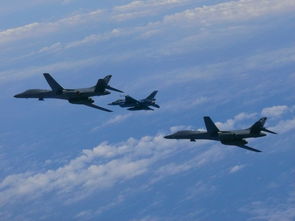Sau nhiều ngày đàm phán, Israel và Lebanon đã đạt được một thỏa thuận ngừng bắn. Theo tin tức của Mỹ, cả hai bên đã đạt được một thỏa thuận về các điều khoản của ngừng bắn.
Tuy nhiên, chi tiết của thỏa thuận chưa được công bố, và có thể sẽ không được công bố cho đến khi các bên có thể đảm bảo rằng nó sẽ được thực hiện. Một nguồn tin từ Israel cho biết, "Chúng tôi đang đàm phán với Lebanon để đạt được một thỏa thuận ngừng bắn, nhưng chúng tôi vẫn đang xem xét các điều khoản. Chúng tôi không thể công bố bất kỳ điều khoản nào trước khi chúng tôi có thể đảm bảo rằng nó sẽ được Lebanon thực hiện."
Lebanon's Hezbollah movement, which is involved in the conflict, said in a statement that the agreement was "a first step towards a comprehensive ceasefire." Hezbollah's leader, Hassan Nasrallah, said that the agreement was "a positive development" and called for restraint and respect for international law.
Israel and Lebanon have been locked in a conflict for years, with each side accusing the other of violating the 2006 ceasefire agreement. The current round of fighting began on May 10th, when Israel launched a major offensive against Hezbollah in Lebanon, and has since resulted in hundreds of deaths and thousands of displaced people.

The United States has been mediating in the conflict, but so far there has been no sign of a lasting ceasefire. On Sunday, Secretary of State Antony Blinken said that the United States was "working around the clock" to try to reach a deal, but he also warned that "it's not going to be easy."
Israel and Lebanon have both expressed their willingness to reach a ceasefire, but there are still many differences between the two sides on the terms of any agreement. For example, Israel wants to see an end to Hezbollah's attacks on its territory, while Lebanon and Hezbollah want to see an end to Israel's occupation of southern Lebanon.
In addition, there are also differences on the issue of prisoner exchange. Israel wants to see its soldiers released from Lebanese prisons, while Lebanon and Hezbollah want to see their prisoners released from Israeli prisons.
However, there are also signs that the two sides are making progress in their negotiations. On Monday, Israeli Prime Minister Benjamin Netanyahu said that he was "optimistic" about the prospects for a ceasefire, and he called on all parties to show restraint and respect for international law.
Meanwhile, the United Nations has been working to provide humanitarian aid to the people affected by the conflict. The UN has said that it is providing food, water, and medical aid to more than 1 million people who have been displaced by the fighting.
However, the UN has also warned that the situation in Lebanon is "extremely fragile" and could deteriorate further if a lasting ceasefire is not reached soon. The UN has called on all parties to work together to find a peaceful solution to the conflict.
In conclusion, while there are still many challenges ahead in the negotiations between Israel and Lebanon, there are also signs that the two sides are making progress towards a ceasefire agreement. However, it is important to remember that any agreement must be durable and lead to a lasting peace between the two countries.









